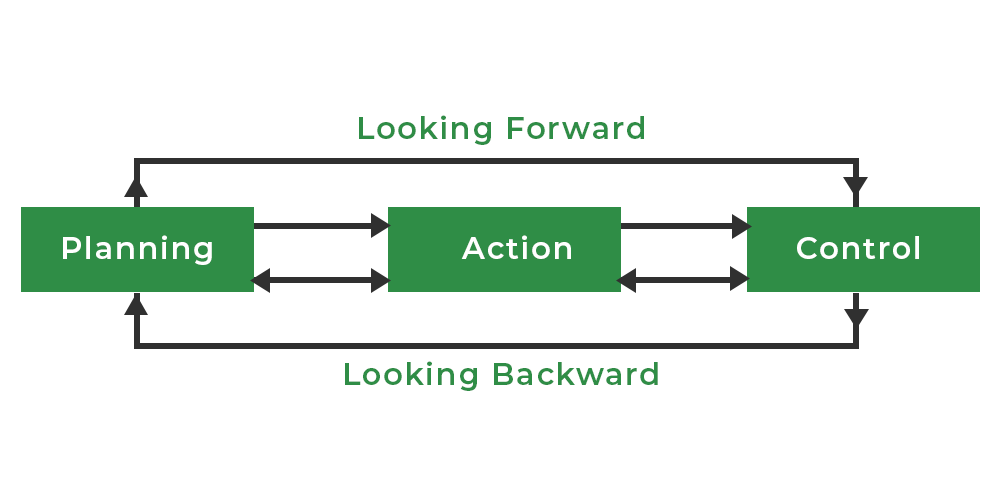Relationship between Planning and Controlling
Last Updated :
06 Apr, 2023
Planning and Controlling are inter-related to each other. Planning is a blueprint of the course of action to be followed in the future. It is also a mental exercise that requires imagination, foresight and sound judgment. It is thinking before doing. It is a preparatory step, and it refers to detailed programs regarding the future course of action. In fact, it is the basic management functions that involve forecasting, laying down objectives, analyzing the different courses of action, and deciding the best alternative of those to perform different managerial functions to achieve pre-determined goals. Thus, it is a continuous process that involves decision-making, i.e., deciding the course of action for framing and achieving objectives.
Planning is deciding in advance what to do, how to do it, when to do it, and who is to do it. Planning bridges the gap from where we are to where we want to go. It makes it possible for things to occur which would not otherwise happen.
-Koontz and O’Donnell
Controlling means comparing the actual performance of an organisation with the planned performance and taking corrective actions if the actual performance does not match the planned performance. Controlling cannot prevent the deviation in actual and planned performance; however, it can minimise the deviations by taking corrective actions and decisions that can reduce their recurrence.
Managerial Control implies the measurement of accomplishment against the standard and the correction of deviations to assure attainment of objectives according to plans.
– Koontz and O’ Donnell
Relationship between Planning and Controlling
Planning and controlling are like two sides of a coin and cannot be separated from each other. The relationship between planning and controlling is as follows:

1. Both Planning and Controlling are Interrelated and Interdependent
Planning and controlling are interdependent as planning is useful only when the controlling function is performed, and the controlling function starts and ends with a new plan.
Controlling is based on planning. If an organisation does not plan its objectives in advance, it will not have any basis or planned performance to compare the actual performance with. Therefore, to perform the controlling process it is essential to first perform the planning process.
Planning without controlling is useless. If an organisation plans its objectives and does not compare the actual performance with the pre-determined goals or objectives, then there is no use to perform the planning process. After comparing the actual performance with the planned performance an organisation can make new plans or revise the existing plans for better performance. Therefore, controlling is essential to fulfil the pre-determined plans.
Planning without control is meaningless and control without planning is blind.
2. Planning is Prescriptive and Controlling is Evaluating
As the planning process prescribes a firm the course of action, it should take to accomplish the organisational objectives, it is prescriptive in nature. However, controlling evaluates the actual performance of the organisation and checks whether or not the actual performance is up to the desired goals of the firm. Therefore, controlling is an evaluating process.
Hence, it can be said that the controlling process starts where the planning process ends.
3. Both are Backward-looking as well as Forward-looking Functions
It is usually said that planning is a forward-looking function, as it provides a plan for the future and is based on future forecast conditions, and controlling is a backward-looking function, as it measures the actual performance of the organisation and compares it with the pre-determined or fixed standards. However, planning is also a backward-looking function because the plans of an organisation are prepared after taking past experiences into consideration. Similarly, controlling is also a forward-looking function of management because its basic aim is to improve the future performance of an organisation by taking past experience into consideration.
Therefore, planning and controlling are both forward-looking as well as backward looking.
Share your thoughts in the comments
Please Login to comment...